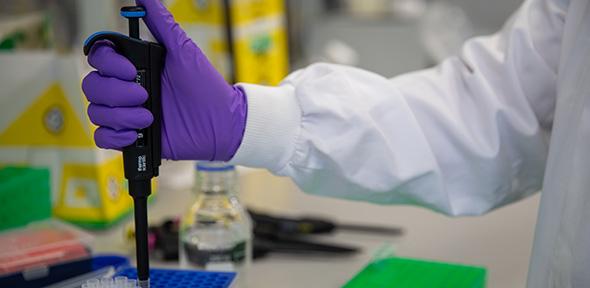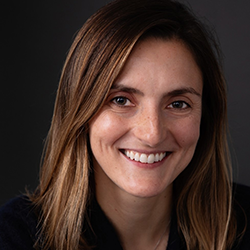
Submitted by Irena Rao on Tue, 09/04/2024 - 18:11
Cancer Research UK has announced £9.2m for Cambridge to train the next generation of doctors and scientists to bring new and better cancer treatments to patients faster.
The charity is to award the funding over the next five years to train early-career clinician-scientists – doctors who also carry out medical research - as part of its Clinical Academic Training Programme.
I’m immensely grateful for the funding I received from Cancer Research UK, which provided me with a key stepping stone in my clinician scientist career
Caroline Watson
The Clinical Academic Training Programme will invest £58.7m at nine research centres including the Cancer Research UK Cambridge Centre in partnership with the University of Cambridge and Cambridge University Hospitals NHS Foundation Trust, which includes Addenbrooke’s Hospital.
Clinician-scientists play an essential role in translating cancer research, helping to bridge the gap between scientific research carried out in laboratories and clinical research involving patients.
Caroline Watson, now a Group Leader here at the Early Cancer Institute and Honorary Haematology Consultant at Addenbrooke’s Hospital, has benefited from this funding, having previously been awarded a three-year Cancer Research UK Clinical Research Training Fellowship in 2017. Caroline was first author on a Science paper and Nature Genetics paper, based on her Cancer Research UK-funded research, that identified which mutations in healthy blood are associated with the highest risk of developing blood cancer.
Dr Watson said: "As we age, we all acquire mutations in the cells that make up our tissues. The vast majority are harmless, but some can increase cancer risk. With blood’s relative ease of sampling and improved DNA sequencing costs, we now have enough data, across many thousands of individuals, to determine which specific mutations enable cells to expand most rapidly and could therefore confer the highest risk of cancer. Knowing whether specific mutations are high-risk or clinically insignificant is key for the future of personalised cancer risk.
"I’m immensely grateful for the funding I received from Cancer Research UK, which provided me with a key stepping stone in my clinician scientist career. I feel fortunate to now be able to spend the bulk of my time focused on research, but also continue with some clinical work in parallel. Having been involved in setting up the UK’s first clinic focused on blood cancer prevention at Addenbrooke’s Hospital, I look forward to translating my research findings to directly benefit patients."
For the full story, please visit: https://crukcambridgecentre.org.uk/news/cambridge-receives-£92m-next-generation-cancer-experts

